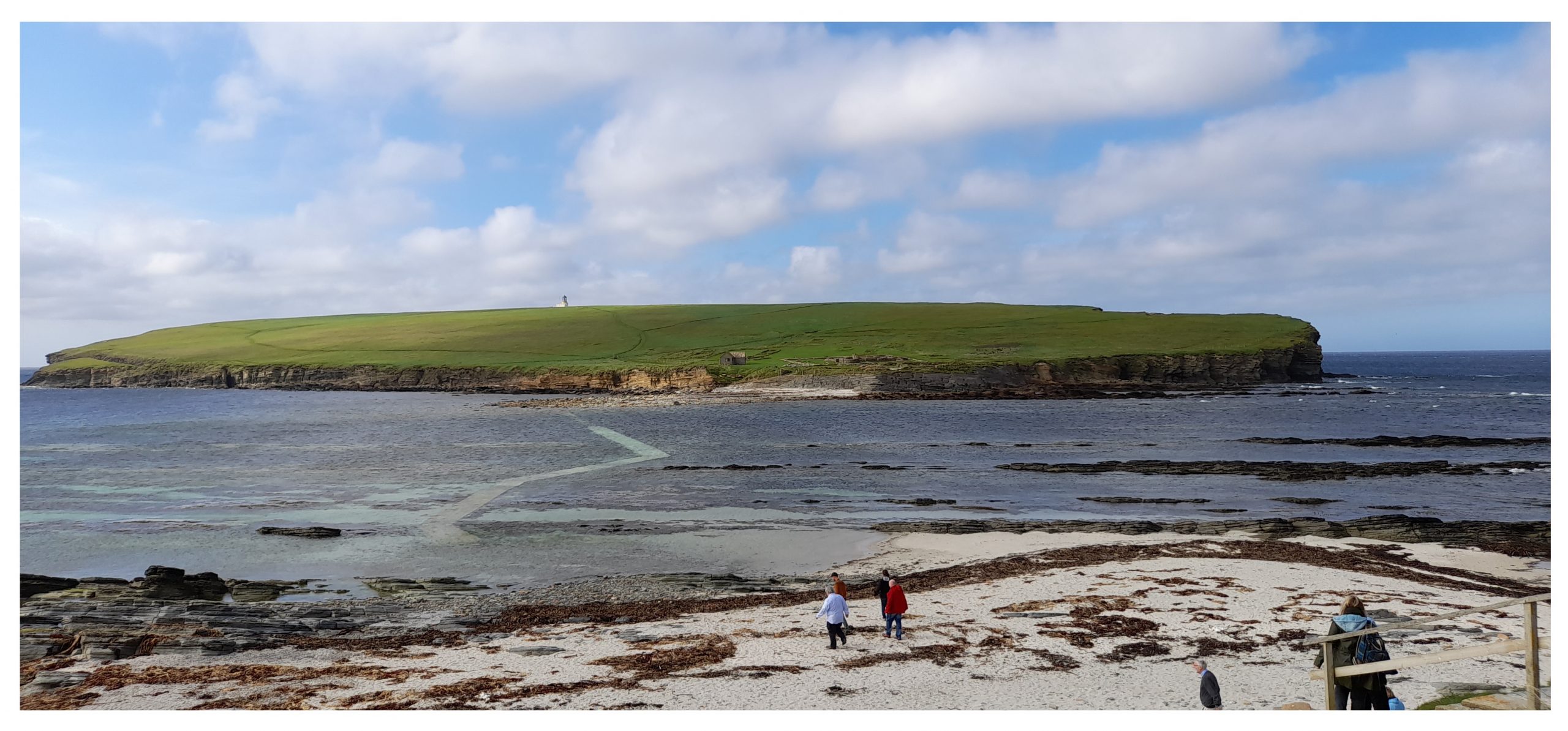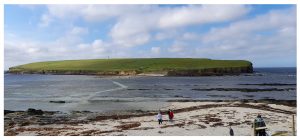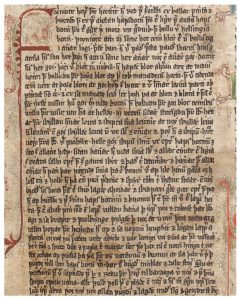
17/05/2024, by aezcr
The Saga of the Earls of Orkney
The world-famous Icelandic sagas encompass many different types of narratives, including stories about saints, bishops and knights. Probably the best-known are Sagas of Icelanders, set in Viking Age Iceland and featuring Icelandic characters, and the Sagas of Kings, about the kings of Norway from prehistory to the high medieval period. In between these two genres is a saga that is set mainly in Britain and features characters living in northern Scotland when it was still a part of the Viking diaspora. Usually known as Orkneyinga Saga, this saga tells the story of the Orkney earldom through the adventures and feuds of its leaders, the earls of Orkney, from their mythical origins in Norway through to the beginning of the thirteenth century, when the saga was put together in Iceland.
As a title, Orkneyinga Saga (‘Saga of the Orkney Islanders’) is misleading since there is very little in it about the ordinary inhabitants of the islands, while the earldom encompassed more than just Orkney, including Shetland and Caithness for at least part of its history. Also, this title is a modern one as there is no medieval evidence for it. However, several texts refer to something called Jarla Saga or Jarla Sögur (‘Saga[s] of the Earls’) in contexts which make clear that they are referring to the earls of Orkney rather than some other earls. A better title for the saga would therefore be Orkneyja Jarla Saga (‘Saga of the Earls of Orkney’ or, literally, ‘the Orkneys’) which references these medieval citations while also recognising that what might once have been a collection of anecdotes (as indicated by the plural form) was eventually compiled into a single narrative.
This narrative is chronological, beginning by establishing the ancestors of the earls in Norwegian prehistory and then recounting the beginnings of the earldom in the Viking Age. Unlike the Sagas of Icelanders in which the feuds between characters are usually about some bone of contention involving property, honour or a woman, the Saga of the Earls of Orkney focuses on the political relationships between the earls, and between the earls and their overlords in Norway and Scotland. Realpolitik means that when co-rulership does not work out, some of the earls find it necessary to exterminate their rivals, who are usually their close kinsmen. The saga as we have it today ends with the death of Earl Haraldr Maddaðarson in 1206 and a brief reference to his successors.

St. Magnus’s Church, Egilsay (©Judith Jesch)

Birsay, where Þorfinnr usually resided and where the first bishopric in the Orkneys was established (© Judith Jesch)
Highlights of the saga narrative include: in the eleventh century, the long rule of Þorfinnr Sigurðarson, viking turned statesman; in the early twelfth century, the life and martyrdom of Magnús Erlendsson, killed by his rival earl who was also his cousin; and, later in the twelfth century, the colourful voyagings of Rǫgnvaldr Kali Kolsson, nephew of St Magnús, and his love-hate relationship with Sveinn Ásleifarson, useful troublemaker, and ending with Haraldr Maddaðarson and the inevitable Scottification of the earldom. The sections on Þorfinnr and Rǫgnvaldr are notable for copious quotations of skaldic poetry. This poetry is a complex genre found only in Old Norse and used for the praise of leaders by professional poets or, in the case of Rǫgnvaldr and his associates, for recording their life events as they happened, often in a jocular fashion. The saga also includes many references to places and even buildings in northern Scotland that it is still possible to visit today.
The saga is central to the Ragna’s Islands project, which is supporting a new translation with the new title, by Judith Jesch and to be published by Birlinn.
Judith Jesch
Further reading
Hermann Pálsson and Paul Edwards (trans.), Orkneyinga Saga (Penguin, 1981)
Judith Jesch, ‘Earl Rögnvaldr of Orkney: A Poet of the Viking Diaspora’, Journal of the North Atlantic. Special Volume 4 (2013), 154-160
Judith Jesch, ‘Diaspora Sagas’, in Heather O’Donoghue and Eleanor Parker (eds), The Cambridge History of Old Norse-Icelandic Literature (Cambridge University Press, 2024), pp. 417-434
No comments yet, fill out a comment to be the first


Leave a Reply